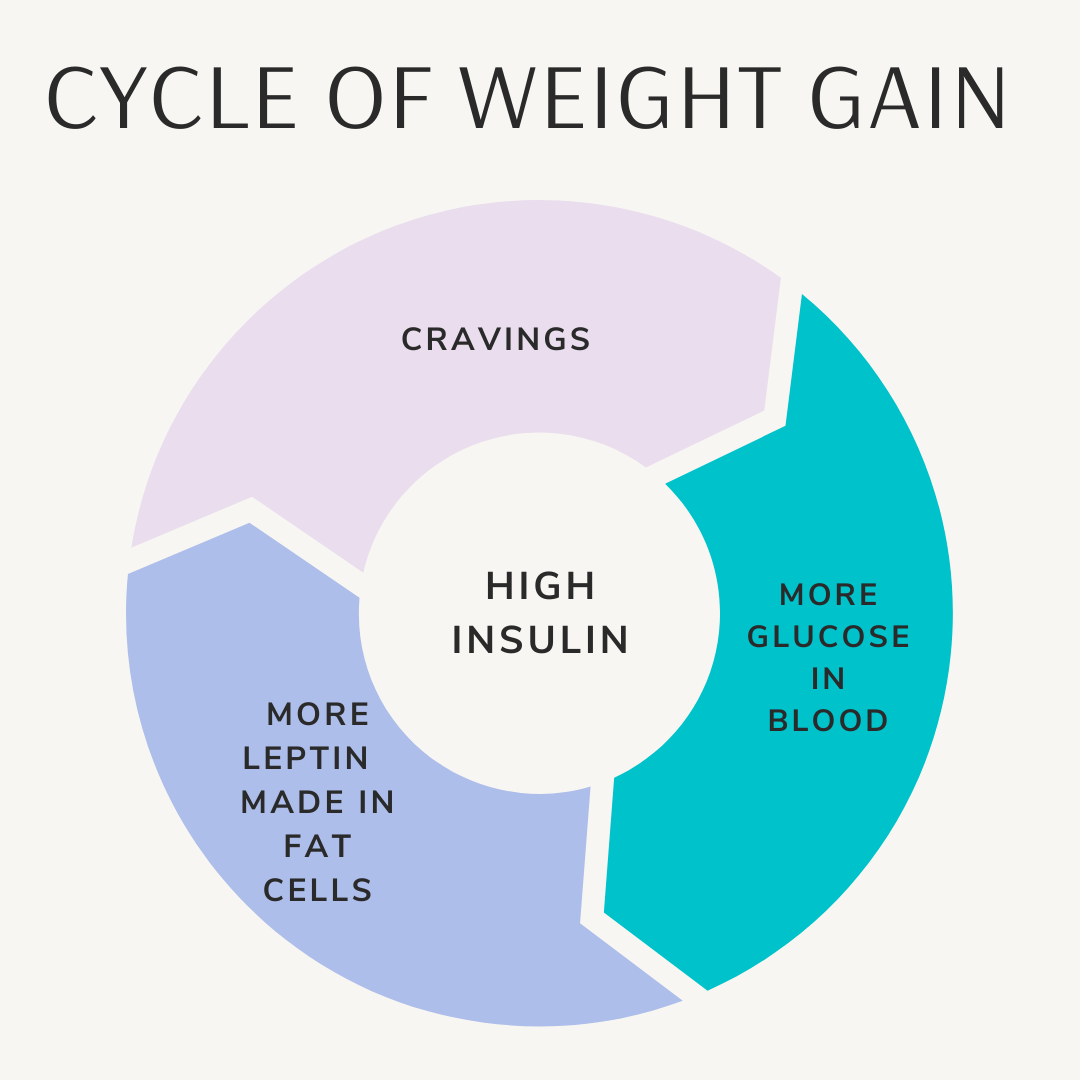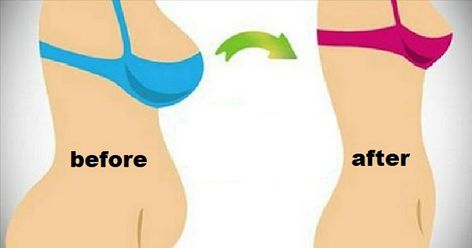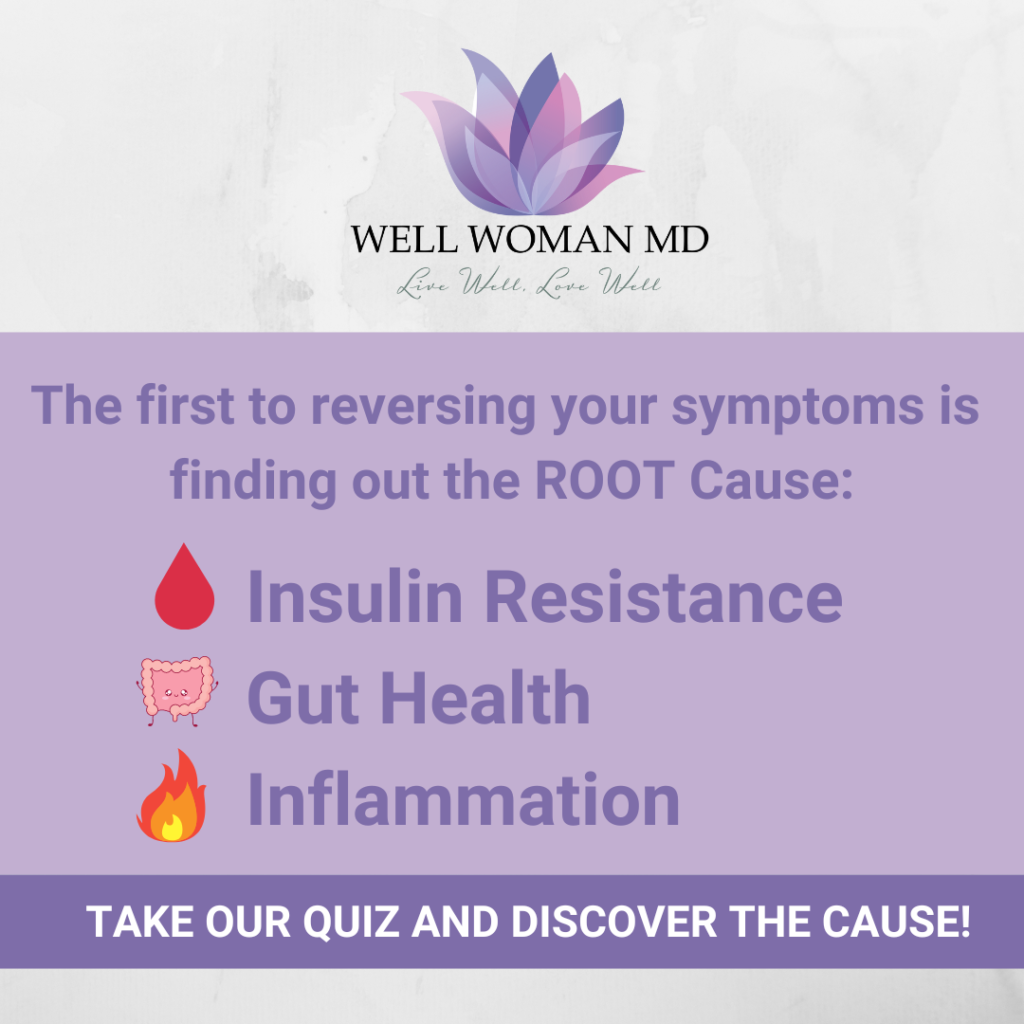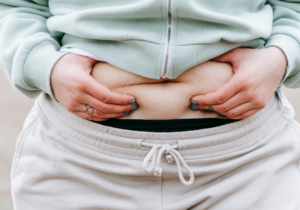PCOS (polycystic ovarian syndrome) is a common problem among women, ranging from 10 to 25% of the female population or 1:10, and the leading cause of infertility.
You know weight gain is common if you suffer from polycystic ovarian syndrome. Bet your doctor told you to eat less and exercise more? Sadly, this often does not work because weight gain with PCOS is complicated.
This post will focus on why PCOS causes weight gain, what PCOS belly is, and what you can do to combat it.
Why does PCOS cause weight gain?
Women with PCOS gain weight due to abnormally high androgens, insulin resistance, and cortisol levels that cause inflammation. This hormone imbalance leads to intense cravings, disrupting the signal between your brain and stomach telling you that you are full. The glucose from the food you are is then stored as fat. Unfortunately, the more fat you gain, the more estrogen you make, making your cravings and weight gain even worse.
High Androgens
A hallmark for the diagnosis of PCOS is high androgen levels. These can increase inflammation and insulin resistance. And lead to high levels of estrogen or estrogen dominance due to the conversion of testosterone to estrogen.
Insulin Resistance
Most women with PCOS have insulin resistance, even women diagnosed with lean PCOS. High blood sugar leads to insulin being unable to open and shut the door with the key. Insulin signals the cell to open the door and let glucose or sugar into the cell for energy conversion. Because the cells are instructed to open the door repeatedly, the cell becomes “resistant” to the signal. The pancreas then releases more insulin to open the door (hyperinsulinemia). Causing more resistance to open the door, and a vicious cycle occurs.

Why is this bad?
- More cravings for sweet foods
- Eat More, and more glucose in the blood
- More leptin produced, leptin resistance to knowing when you are full or hungry.
- More fat makes more Leptin and Estrogen to, make the entire cycle worse.
- More insulin also drives up male hormones-makes the PCOS belly shape.
High Cortisol
The role of Cortisol is to put glucose in the blood so it can be used immediately in the face of a “threat.” Once the threat is gone, the excess glucose is stored by the liver and converted to fat for the next threat. The “flight or fight.” response.
Insulin resistance causes excess glucose in the bloodstream, and the body can not handle this extra glucose. Chronic stress or high cortisol levels combined with insulin resistance causes more fat, especially in the abdomen, due to more receptors for Cortisol in that area. The body produces this fat because it feels it is under constant threat and must be ready with glucose stores for energy. Leptin resistance stimulates the brain to crave sugary foods to get glucose quickly to get this extra glucose.
What is a PCOS belly?
Fat storage in a woman with PCOS primarily occurs in the abdomen, called a PCOS belly. Fat is deposited under the skin, giving a woman a pear-shaped figure. But women with PCOS also have visceral fat or fat around the abdominal organs inside the body. This fat is the most concerning as high visceral fat leads to diabetes, heart disease, and high blood pressure.

Why is PCOS belly so challenging to lose?
Fat cells create more fat cells. High androgens, insulin resistance, and cortisol levels cause more fat cells to form. These cells then secrete estrogen. The higher levels of estrogen (estrogen dominance) overpower their counterpart progesterone. Estrogen dominance leads to cravings for sweets, eating more and then more fat-a vicious cycle.
How do you stop gaining weight when you have PCOS?
To lose weight with PCOS, you have to fix the three hormones-Insulin, Cortisol, and Androgens through diet and lifestyle changes. You should start with testing to find out what the cause is.
Hormone Testing is done using blood, saliva, and urine samples. But it would help if you spoke to your provider about the tests suitable for you.
But all women with PCOS should know their numbers:
- Sex Hormones:
FSH, LH, AMH (fertility), free testosterone, DHEA, 17-OH
- Metabolic Hormones:
HbA1c, fasting insulin and glucose levels, thyroid profile,
+/lipid profile.
- Inflammation:
CRP level, nutrient deficiencies.
What foods do I avoid with PCOS?
- Fast Digesting Carbs
- Sugary, sweetened beverages
- High Fructose Corn Syrup
- High Glycemic Index Foods
- Processed foods
How to lose belly fat with PCOS?
Diet:
There are a lot of diets out there. There is no one diet for everyone because it depends on your food preferences, insulin resistance levels, eating behaviors, the timing of eating, etc. A personalized plan is critical if you want to lose and maintain weight. The complexity of weight loss and PCOS is why an integrative approach is essential.
In general, most women with PCOS have insulin resistance. So focusing on eating a balanced plate at every meal will help you balance your blood sugars and reduce insulin resistance.
3 Keys to do this:
- Eat slow-digesting carbs.
- Get 35 grams/fiber a day.
- Cut out processed foods.
- Get enough Omega 3’s.
Exercise:
Low-intensity exercises like yoga and pilates can reduce insulin resistance. It can also help with toning and building muscle, burning more glucose at rest.
High-intensity exercises like HIIT and running is okay if it does not raise your cortisol levels.
Stress:
Emotional or physical stress increases the production of Cortisol, which makes it easy for your body to make belly fat.
PCOS women with belly fat to lose need must go down the dial on stress. (See my post on )
Suggestions for stress reduction:
- Human Contact. Reaching out to a friend can take the edge off of a stressful situation.
- Meditation or Prayer. Research shows that just a few minutes of quiet reflection can reduce the negative effect of stress on the body.
- Movement and Stretching. A short walk or a few yoga poses help bring your body and mind back into balance.
- Breathe. According to experts from Santosha Yoga Institute, yoga and meditation can prevent stress-induced food binges and appetite spikes.
This post does not cover supplements but if you want a brief overview, check out this post by a colleague, Dr. Sara Gottfried.
Conclusion: PCOS and belly fat
PCOS is a common disorder that affects 1: 10 women. Weight gain is a common sign of PCOS and is often challenging to address due to the complicated disease. Insulin resistance, high androgens, and high cortisol levels make losing weight difficult and create a perfect storm. So the essential steps to consider:
- Test your hormones to know where to focus.
- Start an anti-inflammatory diet with slow-digesting carbs paired with protein and healthy fats.
- Move daily and not strenuously.
- Start a stress-reduction plan.
- If you have digestive issues, you must address this first.
To get started, find out what is driving your PCOS. Take my FREE Quiz.




